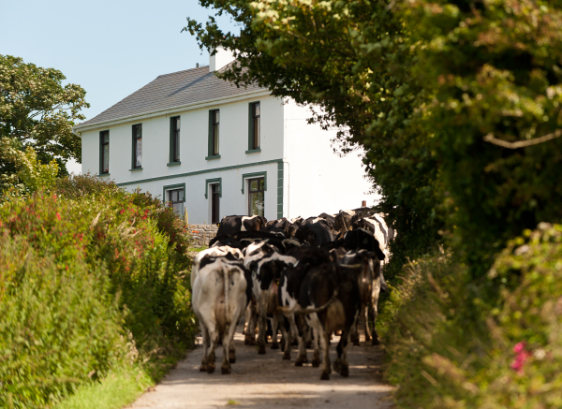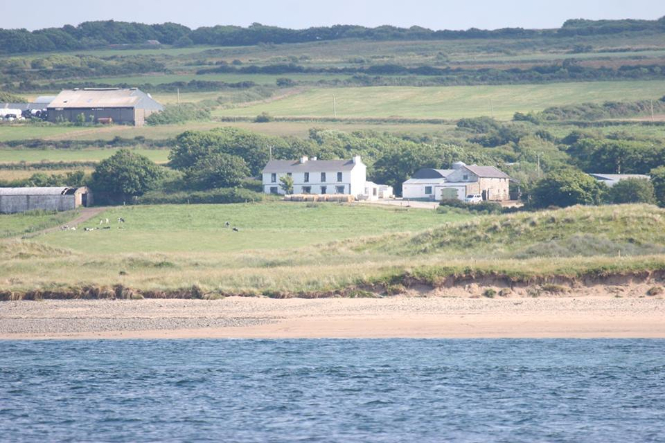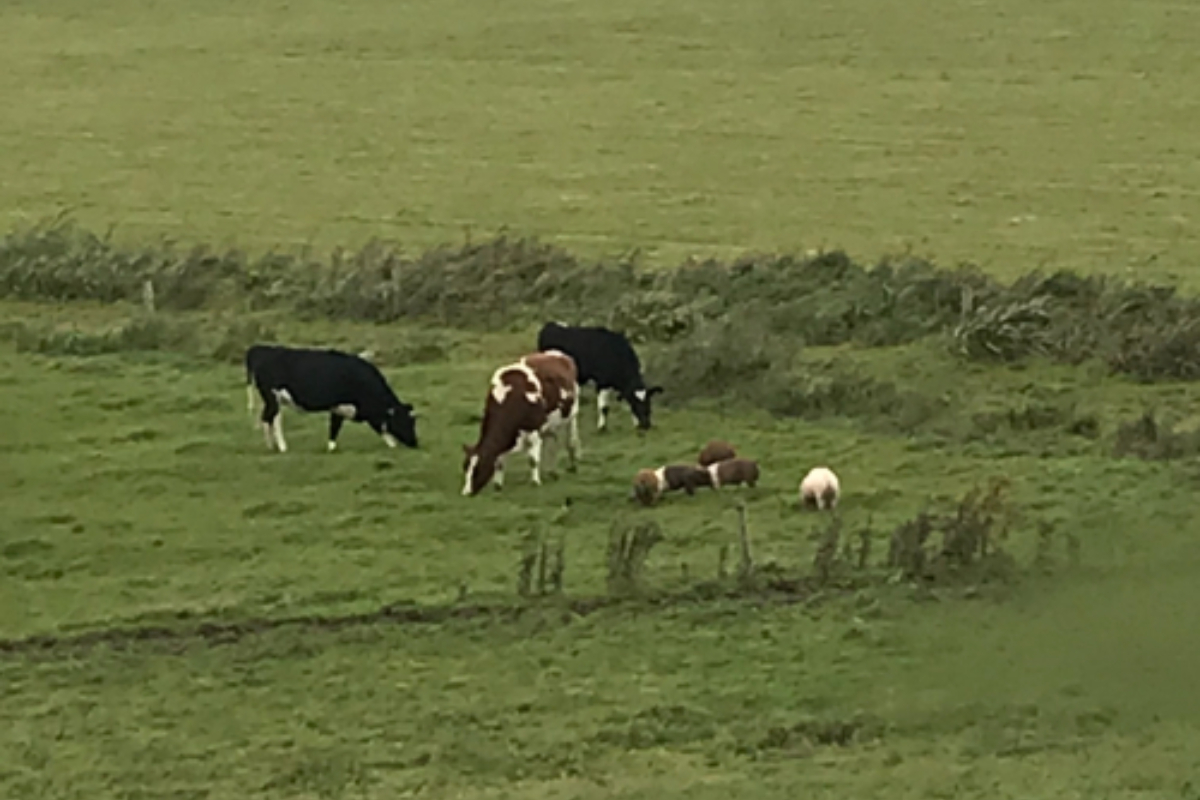As part of this week’s Dairy Focus, That’s Farming, speaks to Kate Carmody, a dairy and hemp farmer and organic cheese-producer.
Hailing from a large family, Kate Carmody was born on the Wirral in Cheshire, in 1958.
“My father was born in Liverpool; he was from an Irish background. He was a barrister and a judge. My mother was from Yorkshire and was from a business-farming background. She was a social scientist. I am one of a family of seven children.”
After finishing her biochemistry degree, she came over to work in Ireland in 1980. She has minor awards in health and safety, artisan food systems and quality systems to date.
Besides, she chairs the Kerry Society for Prevention of Cruelty of Animals (KSPCA) and the Irish Hemp Cooperative Society.
Coming from a socialist background, Kate considers herself an activist and a feminist. She has a diploma in social and community studies from University College Cork to reinforce these values.
“I have undertaken a lot of voluntary work, and I am a social activist. I come from a long line of social suffragists. I have become quite a strong feminist due to the conservative nature of agriculture and the constant misogyny I encounter,” she explains.

Farm management
Carmody is the director of her own business, Beal Organic Cheese, and of Kerry Hemp Partnership Limited.
“I manage the day-to-day of the farm and the milking. A neighbour feeds the cattle by tractor. I do not use heavy machinery due to having epilepsy,” she explains.
“My two youngest daughters help on the farm when they are around; however, they are both studying. My youngest daughter, Molly, is 23, and is finishing her degree this June. She is a great milker of cows.”
Molly Carmody intends to complete her Green Cert and have a hand in the Beal Lodge farm once she graduates.
“Her degree course is majoring in sociology and Asian studies. Due to Covid-19, she will come home for a while, but she plans to go to South Korea after that,” Kate told That’s Farming.
“My other daughter, Bridget, grows a lot of vegetables on the farm using a polytunnel. She also looks after the calves and pigs.”

History
Notably, the Beal Lodge farm has been in the family since the 1920s. It has seen evolvement in terms of what it produces; Kate is open to adapting the farm.
“My late father-in-law bought the farm in 1929, after making a ‘fortune’ in America. He was born on a neighbouring farm. Known as Beal Lodge, it was part of Lord Listowel’s estate.”
“The original house was a hunting lodge; it was knocked in the late 1930s, but the original stone outbuildings survived. My husband inherited the farm in 1977 after his father’s death.”
Land
The quality of the land has allowed Kate to adapt production methods and what she chooses to produce.
“The farm is in Beal in Kerry, which is at the mouth of the River Shannon. It is 66 acres of highly productive land, with up to 3 feet of topsoil. The lower fields are essentially silt land that is high in lime and thus, ideal for root crops”.
“When I married into this family in 1984, my husband was intensively dairying and cutting silage up to five times a year. The herd of cows then were mainly Friesian-Shorthorn-crosses,” she recalls.
In 1984, they began breed British-Friesians, and now have a pedigree herd of Holstein-Friesians.
It was a gift from a loved one that nurtured the idea of a cheese-making business.
“In 1987, I started making cheese commercially. My mother had given me a cheese press as a wedding present. We also have always kept a few pigs here, as I cannot abide waste,” she says.
“Due to my husband’s health problems, I took over running the farm in 1997. He died in 2007. I transitioned it into organic production. I have welcomed tourists and students onto my farm for the last 37 years,” Kate explains.

Climate change
Being an environmentally conscious farmer has manifested itself in many ways in the practices carried out at Beal Lodge farm.
There is a clear focus on sustainability and reducing carbon emissions in her operation.
“It has always been a farm that has employed people, until recently. As an organic enterprise, I employ multi-species grass swards with high clover content.”
“My cows last year averaged over 1,400 gallons on very low inputs. I have a one-in-eight rotation of reseeding. I have incorporated hemp and flax into this rotation.”
Interestingly, the waste products of hemp and flax production prove useful on the farm.
“The stalk from these plants makes great bedding material for animals, and the resultant compost is ideal for vegetables,” she says.
“Due to the impact of climate change, I am in the process of reducing the stock levels. This makes management a lot easier. Ten years ago, I had 70 cows; last year, I had 17. I am diversifying more. I am not putting all my eggs in one basket!”
Downsizing
Intriguingly, the intention for the future of the dairy aspect of the farm is to reduce numbers.
“I intend to downsize my farm to make it compact. This is also to make it an ecological training farm. We need to encourage community resilience and retrain for a more holistic future,” she states.
Education and training are becoming a strengthened focus for the North Kerry farm.
“I ran a very successful workshop in 2019 on building with hempcrete and would like to run more of these. I hope to renovate my cheese-making facilities this year as well, to offer classes in dairy product production,” Kate tells That’s Farming.
“The tourism side of my business was always very enjoyable until Kerry County Council decided that north Kerry had no tourism value. They effectively side-tracked all the tourist traffic away from this area,” she clarifies.

Future
Kate Carmody has many plans for the farm’s sustainability, a prime one involving their electrical power source.
“I intend to go off-grid for electricity. I did have planning permission 20 years ago to put in an anaerobic digester on the farm.”
“However, the Department of Agriculture, Food and the Marine would not give me a grant at the time. To qualify for the grant, you actually had to be breaking the law in terms of the nitrates directive,” she says.
Sharing her secret to successful and diversifying business affairs, Kate has a word of advice for anyone who seeks it.
“Walk before you try to run. Look to your assets and trial what suits your farm. Less is more is my motto,” Kate Carmody concludes.





